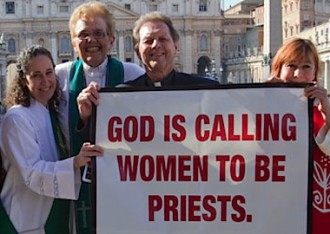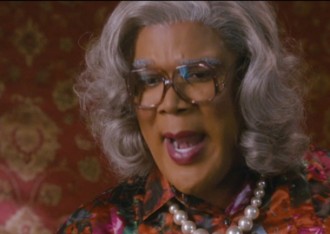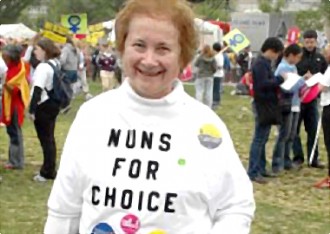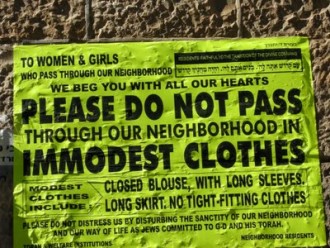
Religion as a Front for Tyranny: A Roundtable on the Timeliness of Hulu’s “The Handmaid’s Tale”
Are we worse off than when “The Handmaid’s Tale” was first published?
Read More
Are we worse off than when “The Handmaid’s Tale” was first published?
Read More
To present this group of 25 clergy as a microcosm of what black America wants and thinks is lazy and dangerous.
Read More
Women hate Trump, while evangelicals are sticking behind him. But what about evangelical women?
Read More
There are other historical characters who come to mind, though.
Read More
An interview with Leslie Dorrough Smith on her new book, “Righteous Rhetoric: Sex, Speech, and the Politics of Concerned Women for America.”
Read More
Just after the new pope effectively shut the door to the ordination of women, a priest connects his segregated Louisiana upbringing and campaign to end the U.S. Army School of the Americas to last year’s excommunication for his refusal to quit ordaining women.
Read MoreGetting back together with Sarah Sentilles’ Breaking Up With God.
Read More
Tyler Perry’s Madea franchise is part of a collective of black, fat drag, comedy-dramas. These films bear six distinguishing features: 1) they are considered “successful” because they gross more than their production costs; 2) they are accompanied by an R&B/gospel soundtrack, and 3) include casts of popular black actors and actresses who are well known within African American communities. Also characteristic of these films are 4) the use of multiple and arguably watered-down Protestant messages about the importance of faith in God, couched in comedic performance, to appeal to mass audiences. An additional feature is that 5) the black church is the space where a significant turning point and/or the film’s resolution occur. Most notably, these films are characterized by 6) the donning of intricately designed fat suits by black men (Tyler Perry, Martin Lawrence and Eddie Murphy) to parody black women.
Read More
A nun and a Catholic OB/GYN talk to RD.
Read More
In light of recent events in the small Israeli town of Beit Shemesh, many in the modern Jewish world have argued the haredim (ultra-Orthodox) have crossed a line.
Read More